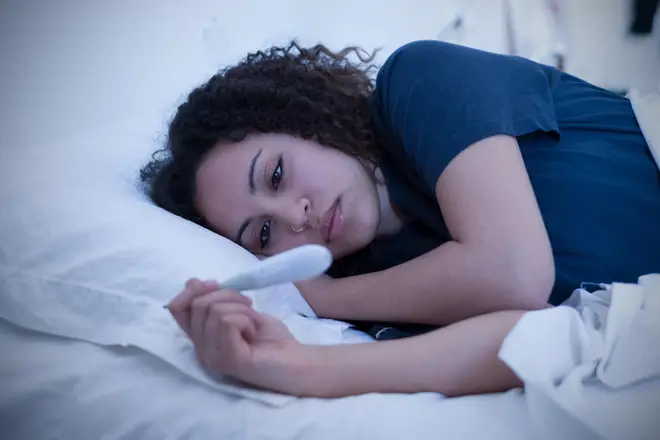
Clive Bull 1am - 4am
9 October 2021, 17:45 | Updated: 9 October 2021, 18:00

Brits are complaining of the "worst cold ever" spreading across the country as falling temperatures sees an increase in indoor socialising after a year and a half of restrictions.
People have taken to social media to complain about their symptoms, which include a cough and debilitating fatigue that sometimes takes weeks to subside.
One social media user reported being "floored" by the bug, with another saying it was the "worst lurgy I've ever had".
Read more: Empty shelves as supply crisis ‘leaves one in six unable to buy essentials’
Read more: Three men shot at barber's shop in east London as police hunt gunman
Whilst usually people have some natural immunity to circulating viruses, 18 months of coronavirus restrictions have left people vulnerable to seasonal bugs.
It means that as restrictions eased and people spent more time indoors with other people - which is one of the best environments for viruses to spread - there has been an increase in people catching colds, and, in some cases, an increase in the severity of symptoms.

Will you have to film yourself taking the LFT test?
As seasonal viruses begin to circulate again, it might be hard to know whether you have Covid-19 or the common cold.
The Zoe Covid Study points out that a lot of the symptoms are the same - particularly as the main symptoms of Covid have developed over recent months.
Whilst at the start of the pandemic people were told to look out for a cough, a fever and a loss or change in their sense of smell or taste, data from the Zoe app now suggests that a runny nose, a headache, sneezing and a sore throat are the most common symptoms of the virus.
However a loss or change in sense of smell - known as anosmia - remains a key sign to look out for, although data from the study suggests it is less common in unvaccinated people who catch Covid.
Read more: Home Secretary backs '888' phone number to keep women safe at night
Read more: Texas abortion ban reinstated by appeal court
Researchers behind the study advise people suffering from colds to get a PCR test to be sure they do not have Covid-19.
The study points out that a negative lateral flow test does not necessarily mean you do not have coronavirus, so if you feel unwell - particularly if you have any of the common Covid symptoms - you should get a PCR test just in case.
Even if your PCR comes back negative, researchers advise taking steps to minimise the spread of your cold, such as wearing a mask and washing your hands often.

Vallance explains reasoning behind offering booster jabs
It comes as eligible people are urged to come forward for their Covid booster jabs.
NHS England said more than 2 million people have so far been given their third vaccine three weeks after the programme began, including boosters and extra jabs given to people with severely weakened immune systems who might not have produced a strong immune response to the first two jabs.
People eligible for boosters include those aged 50 and over, frontline health and social care workers, and those aged between 16 and 49 with underlying health conditions.
Booster jabs are currently being given at least six months after a second dose.